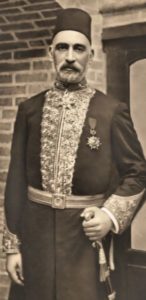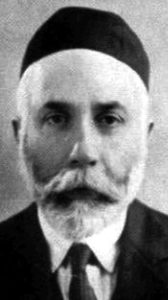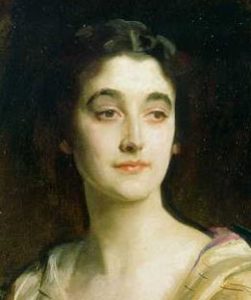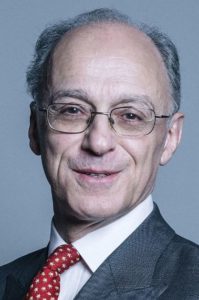Israeli Supermarket King and Palestinian Hero
 Rami Levy (b. 1955) was born in Jerusalem to an impoverished Iraqi-Jewish family. After completing his military service, he took over his grandfather’s failing grocery stall at the local market. He decided to slash his prices and sell without profit for the first three months to attract customers. After that, he continued operating at wholesale prices, becoming Israel’s first official discount store. A few years later, he was able to open a bigger, second location, and in 1992 his first supermarket, Rami Levy Shivuk HaShikma, named after himself and the street where his first shop was located. He has since expanded to 44 locations across Israel. He also operates 4 locations in Judea and Samaria (the “West Bank”) that, despite being boycotted by the Palestinian Authority, employ Palestinian workers at double the wages of other supermarkets in the area, and are hugely popular among Palestinian shoppers who appreciate the low prices. More recently, he opened a shopping mall on the outskirts of Jerusalem, where a third of the stores are Palestinian-owned. Rami Levy has supported Jewish settlements in the area and does not see them as a barrier to peace, because he strongly believes Jews and Arabs can coexist no matter where they live, and peace can be achieved through Palestinian economic development. He has been described as “the Israeli supermarket king that became a Palestinian hero”. Today, Rami Levy supermarkets are famous for their clever marketing and epic pre-holiday sales (for example, chickens, apples, and honey for less than a shekel per kilo before one Rosh Hashanah). The company went public in 2007, and has since expanded into clothing, real estate, and cellular communications, becoming Israel’s fourth mobile network. They are even trying to develop a home-delivery system using drones. Rami Levy Shivuk HaShikma is now the third largest supermarket chain in the country.
Rami Levy (b. 1955) was born in Jerusalem to an impoverished Iraqi-Jewish family. After completing his military service, he took over his grandfather’s failing grocery stall at the local market. He decided to slash his prices and sell without profit for the first three months to attract customers. After that, he continued operating at wholesale prices, becoming Israel’s first official discount store. A few years later, he was able to open a bigger, second location, and in 1992 his first supermarket, Rami Levy Shivuk HaShikma, named after himself and the street where his first shop was located. He has since expanded to 44 locations across Israel. He also operates 4 locations in Judea and Samaria (the “West Bank”) that, despite being boycotted by the Palestinian Authority, employ Palestinian workers at double the wages of other supermarkets in the area, and are hugely popular among Palestinian shoppers who appreciate the low prices. More recently, he opened a shopping mall on the outskirts of Jerusalem, where a third of the stores are Palestinian-owned. Rami Levy has supported Jewish settlements in the area and does not see them as a barrier to peace, because he strongly believes Jews and Arabs can coexist no matter where they live, and peace can be achieved through Palestinian economic development. He has been described as “the Israeli supermarket king that became a Palestinian hero”. Today, Rami Levy supermarkets are famous for their clever marketing and epic pre-holiday sales (for example, chickens, apples, and honey for less than a shekel per kilo before one Rosh Hashanah). The company went public in 2007, and has since expanded into clothing, real estate, and cellular communications, becoming Israel’s fourth mobile network. They are even trying to develop a home-delivery system using drones. Rami Levy Shivuk HaShikma is now the third largest supermarket chain in the country.
Recognizing and Fighting Fake News About Israel
Words of the Week
The state and progress of the Jews, from their earliest history to the present time, has been so entirely out of the ordinary course of human affairs, is it not then a fair conclusion, that the cause also is an extraordinary one—in other words, that it is the effect of some great providential plan?
– Alexander Hamilton




